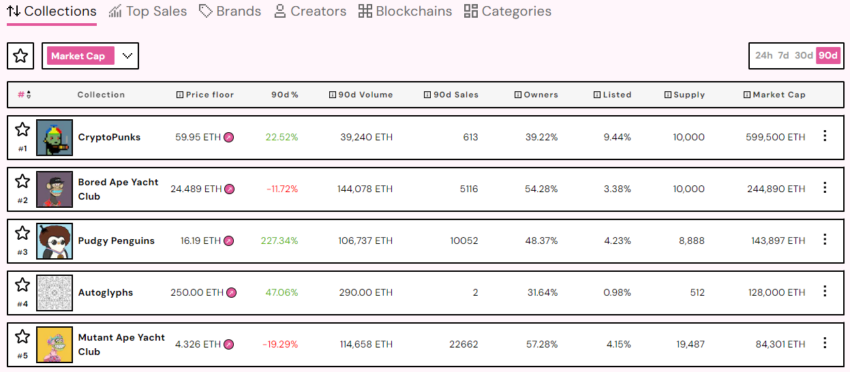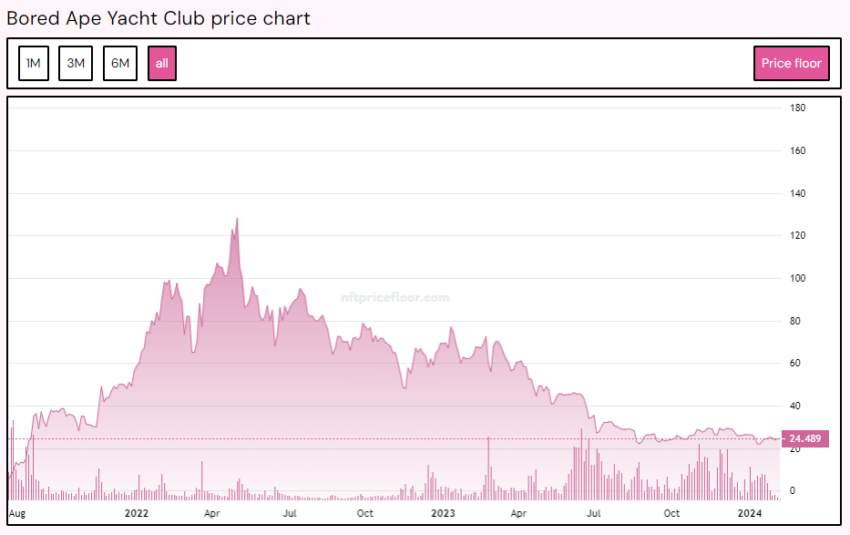ARTICLE AD BOX
Yuga Labs, creators of the Bored Ape Yacht Club (BAYC) NFT collection, recently secured a significant legal victory. The US District Court ruled in favor of Yuga Labs against defendants Ryder Ripps and Jeremy Cahen, ordering them to pay a hefty sum of $8.9 million for copyright infringement and other related charges.
This court decision is not just a win for Yuga Labs but sets a precedent in the digital asset domain, particularly for non-fungible tokens (NFTs).
Yuga Labs Wins Landmark BAYC NFT Copyright Case
The court’s recognition of the BAYC trademarks as valid and enforceable underlines the seriousness with which copyright laws are applied in regard to NFTs. This sector is often considered uncharted territory.
The court document stated:
“It is hereby ordered that Judgment is entered in favor of Yuga Labs, Inc. and against Defendants Ryder Ripps and Jeremey Cahen on Yuga’s first and third cause of action in the amount of $8,895,346.50, for which Defendants shall be jointly and severally liable.”
Read more: What Impact Can AI Have on NFT and Crypto Marketing?
The case revolved around the alleged misuse of BAYC’s intellectual property by Ripps and Cahen, who were accused of creating and selling their own iterations of BAYC NFTs, closely mimicking the original.
The court found this action to be a clear infringement of Yuga Labs’ copyrights. It dismissed the defendants’ counterclaims and marked a significant moment in copyright law as it applies to NFTs.
While Yuga Labs celebrates this legal triumph, the Bored Ape Yacht Club NFT collection, which holds the second place in market cap, is facing challenges of its own.
 Top 5 NFT collections based on market cap in the past 90 days. Source: NFT Price Floor
Top 5 NFT collections based on market cap in the past 90 days. Source: NFT Price FloorBAYC Collection Updates
The collection’s floor prices are hovering near all-time lows, a stark contrast from their peak during the NFT boom. From a high of 128 ETH in May 2021, the current floor price has dipped to just 24.5 ETH. This is a near-all-time low for the collection, barring a few occasional drops under 22 ETH in the past year.
This decline reflects the broader volatility and changing dynamics in the NFT market.
 Yuga Labs’ Bored Ape Yacht Club NFT collection floor price. Source: NFT Price Floor
Yuga Labs’ Bored Ape Yacht Club NFT collection floor price. Source: NFT Price FloorYuga Labs’ victory is a reminder of the evolving regulations of digital assets and intellectual property rights that go along with them.
NFTs are still in a fledgling phase. This case underscores the need for clear legal frameworks and respect for copyright laws in the digital space. The outcome might also influence future dealings in the NFT market, ensuring creators and investors alike tread carefully.
Overall, Yuga Labs’ win sets a precedent for the enforceability of intellectual property rights in the NFT sector.
In adherence to the Trust Project guidelines, BeInCrypto is committed to unbiased, transparent reporting. This news article aims to provide accurate, timely information. However, readers are advised to verify facts independently and consult with a professional before making any decisions based on this content.
This article was initially compiled by an advanced AI, engineered to extract, analyze, and organize information from a broad array of sources. It operates devoid of personal beliefs, emotions, or biases, providing data-centric content. To ensure its relevance, accuracy, and adherence to BeInCrypto’s editorial standards, a human editor meticulously reviewed, edited, and approved the article for publication.
The post Defendants Must Pay $9M in Yuga Labs’ Bored Ape Copyright Infringement Case appeared first on BeInCrypto.
.png)
 9 months ago
3
9 months ago
3








 English (US)
English (US)